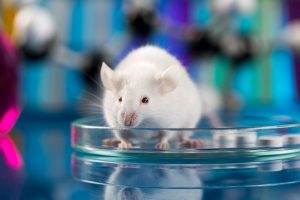 A new experimental drug has shown promise in treating multiple sclerosis in mice model. Study author Dr. Scott Zamvil said, “This study has given us more insight into how laquinimod works. But because this was an animal study, more research needs to be done before we know if it could have similar results in people. [Still] these results are promising because they provide hope for people with progressive MS, an advanced version of the disease for which there is currently no treatment.”
A new experimental drug has shown promise in treating multiple sclerosis in mice model. Study author Dr. Scott Zamvil said, “This study has given us more insight into how laquinimod works. But because this was an animal study, more research needs to be done before we know if it could have similar results in people. [Still] these results are promising because they provide hope for people with progressive MS, an advanced version of the disease for which there is currently no treatment.”
A healthy immune system has T and B cells, which help prevent infection, but in multiple sclerosis patients, these cells create antibodies that mistakenly attack the protective layer around the nerves in the brain and spinal cord.
Advertisement
The team used 50 mice bred to develop a spontaneous form of multiple sclerosis. The mice either received a daily dose of oral laquinimod, or a placebo (water). The researchers then counted their T cells and B cells.
Only 29 percent of the rodents on laquinimod developed multiple sclerosis, compared to 58 percent on the placebo. The researchers believe the drug may help prevent multiple sclerosis, as there was a 96 percent reduction in harmful B cells.
In a second experiment, 22 mice with multiple sclerosis-related paralysis were given laquinimod. The researchers found the medication slowed down the progression of the disease.
The study shows promise of this potential new drug to help treat multiple sclerosis, but larger human trials must be completed before it can actually be used as treatment.
